DEATH SHIP
‘Abhorrent scenes’ aboard livestock carrier in Cape Town spark call for legislative reform

Transnet and the NSPCA confirmed that the Al Kuwait would leave Cape Town overnight after feed for 19,000 cattle aboard was loaded on the livestock carrier.
The Al Kuwait, the livestock carrier dubbed by activists as the “death ship”, that docked at Cape Town harbour on Sunday evening, was scheduled to set sail at around 4am on Wednesday to travel to Iraq after feed was loaded on the vessel.
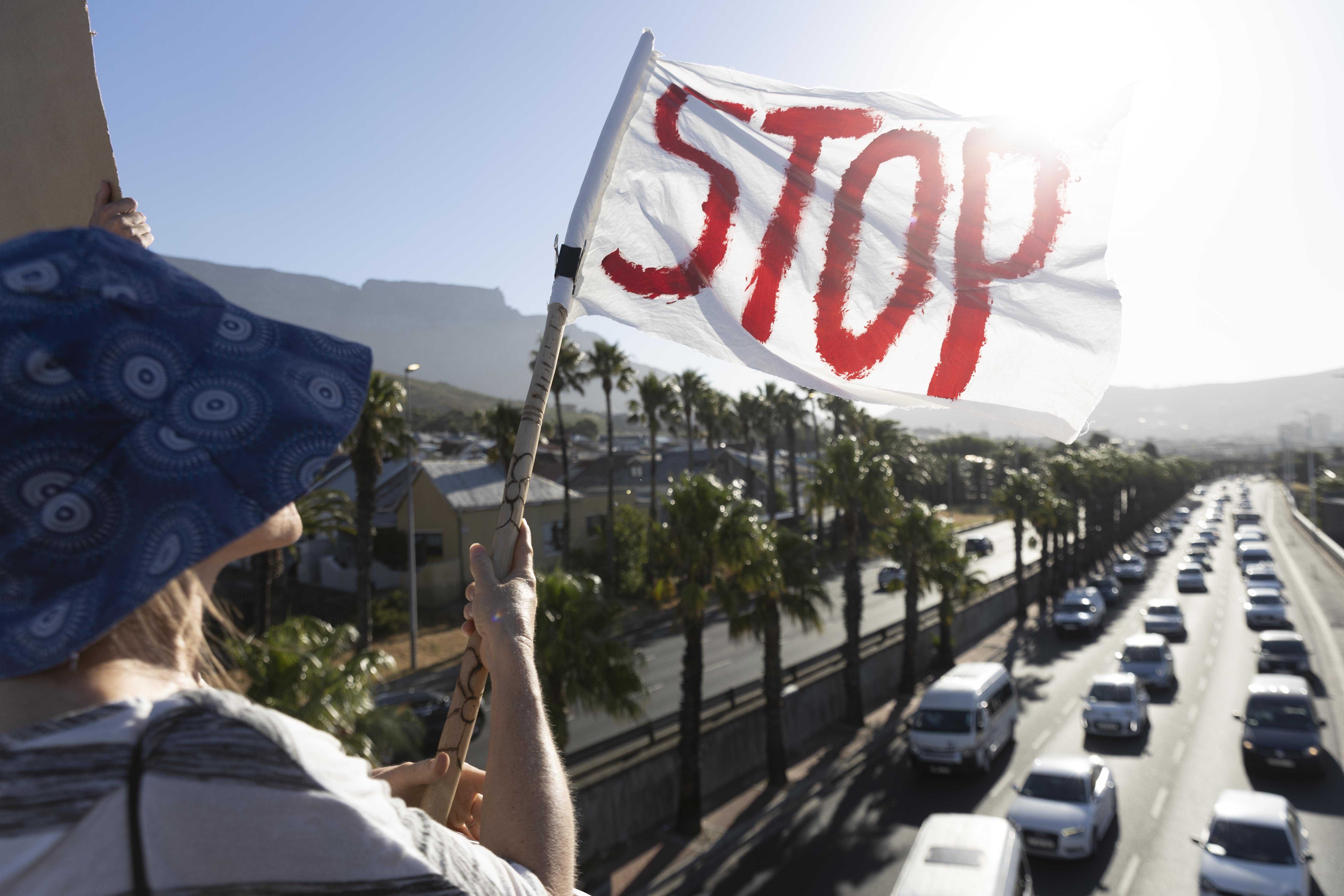
A protest on 19 February 2024 against live animal export and the cattle ship in Cape Town harbour. (Photo: Gallo Images / ER Lombard)
The vessel’s scheduled departure was confirmed by authorities at the port and the National Council of SPCAs (NSPCA).
The Al Kuwait made an emergency docking with 19,000 cattle after being at sea for eight days from Brazil. It docked for animal feed and fuel. South African authorities conducted medical assessments of the animals and administered necessary medical care.
The NSPCA said some of the cattle had been lying in their faeces and urine during the trip from Brazil and there was rotten feed on the ship, which all contributed to a foul smell in parts of Cape Town on Monday.
Read more in Daily Maverick: Inside the stinking ship at Cape Town harbour carrying 19,000 cattle to the Middle East
In a statement released on Tuesday evening, the NSPCA said, “The NSPCA, with the assistance of its member society the Cape of Good Hope SPCA, conducted an inspection of the vessel from Sunday, 18 February 2024 to Tuesday, 20 February 2024.
“The scenes on the vessel were abhorrent, with an extreme build-up of faeces and urine, and animals having no option but to rest in dams of their own excrement.
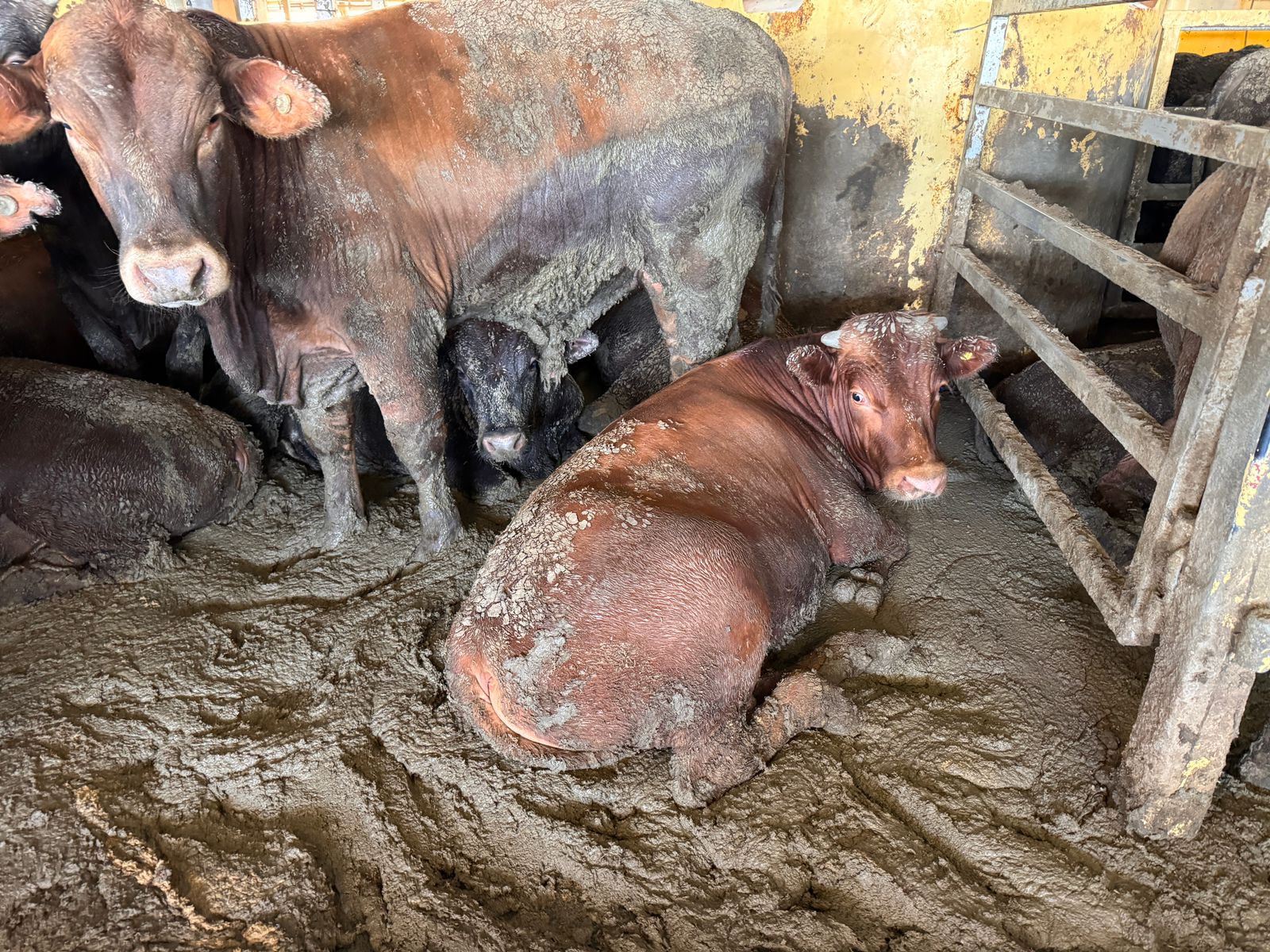
Distressed cattle in the Al Kuwait carrier. (Photo: Supplied)

Distressed cattle in the Al Kuwait carrier. (Photo: Supplied)
“Compromised animals were discovered, including diseased and injured animals. The NSPCA humanely euthanised eight cows aboard the ship and others were found dead. NSPCA veterinary consultant Dr Bryce Marock ensured veterinary treatment of other animals.”
The NPSCA said the incident was a stark reminder that the live export of animals by sea is a “gruesome and outdated practice that inflicts unnecessary suffering on sentient beings.
“It underscores the urgent need for legislative reform and heightened global awareness to end this cruelty once and for all. This method of trade causes pain, suffering and distress to many animals, including high mortality rates occurring during the voyage.”
Concerns continue
While it’s understood that the cattle are being transported alive to Iraq for slaughter in accordance with religious practices, local religious leaders expressed shock at the images of distressed cattle aboard the ship published by Daily Maverick.
Mufti Sayed Haroon Al Azhari, the head of the Cape Town Ulama Board, a body of Sunni scholars, professionals and religious leaders, said Islam was against the suffering of animals.
“Islam teaches us to be compassionate and kind towards animals,” he told Daily Maverick.
“There are high religious etiquette and requirements to be met when preparing meat for Muslim consumption. We are shocked at the horrific images that are displayed from the ship and the condition of the animals, Islam does not have room for harming humans or animals.”
Shaykh Sayed Ridhwaan, an executive member of the Cape Town Ulama Board, said he didn’t have enough information to comment on the export of live cattle to Iraq.
However, he said, “Slaughtering for Muslim consumption has rules. The animals could be slaughtered in Brazil under the strict supervision of Muslim leaders. However, we do not know the reason [for the] carriage of livestock.”
The Southern African Faith Communities Environment Institute (SAFCEI) board, made up of representatives from the Christian, Muslim, Hindu and Braham Kumaris faiths, expressed its shock at seeing the terrible conditions the cattle endured.
SAFCEI chairperson Dr Braam Hanekom said: “This raises the question we have been asking for so long about the specific farming methods that we see around us and also the related value chain of how things are conducted. We ask for an in-depth investigation by the Department of Agriculture… We ask that the government takes immediate action in line with the current legislation.”
Permission to dock
Cape Town Port manager Rajesh Dana said Transnet National Ports Authority (TNPA) acknowledged the concerns surrounding the livestock carrier.
“TNPA’s decision to allow the docking of Al Kuwait was made based on a thorough assessment of various factors and in consultation with the state veterinarian, Port Health and the Maritime Security Coordination Centre.”
Dana claimed the safety and wellbeing of the animals on board was of paramount importance in making the decision.
“Port Health cleared the vessel and in so doing confirmed that all potential health issues would be managed and controlled. The state vet directorate for animal health granted permission for the vessel to be docked at the port.
“TNPA continues to collaborate closely with the vessel agent, terminal operator, state veterinarian, Port Health, Border Management Authority and the NSPCA to monitor the wellbeing of the animals and manage the risk associated with the livestock vessel docked in the port.”
According to its website, the Al Kuwait is owned by the Kuwaiti company Al Mawashi. Attempts for comment from the ship owners were unsuccessful. The NSPCA has taken the company to court on multiple occasions. DM
Update: The Al Kuwait departed at 4.30am on Wednesday.









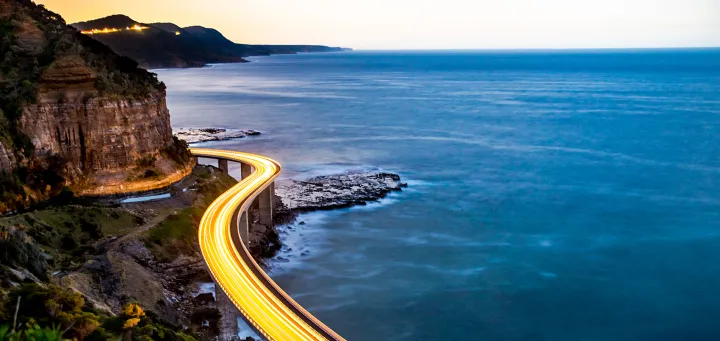
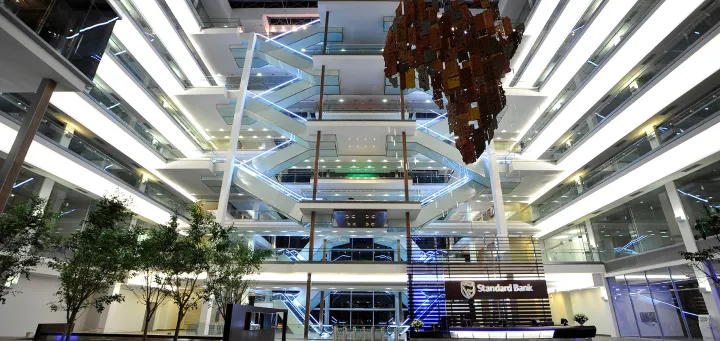



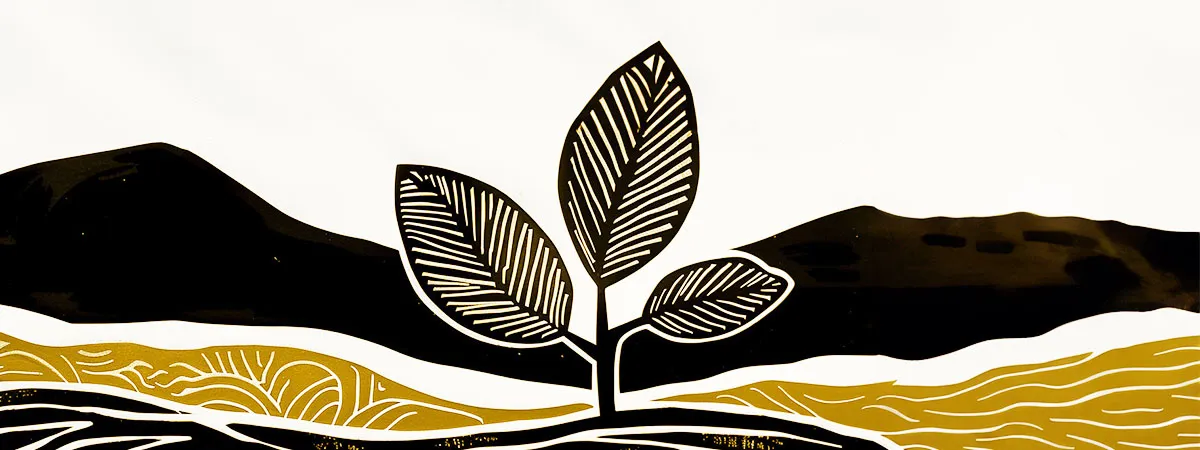
An outdated practice could be used as a correct term. However the question should be asked as to why the Al Kuwait does not have its own veterinarians on board looking after the animals wellbeing while on voyage? Why are the conditions so unsanitary, why do the pens not pressure hosed down and cleaned on a daily basis? why are there no windows and adequate ventilation installed on these ships? As far as I have learned after further investigation, these ships are simply car carriers converted to carry livestock. Unfortunately there are some rich and powerful people running these businesses and to say the least it will not stop.
Do the folks in Iraq want to eat animals that have been lying on excrement? Shouldn’t this all be their problem?
The ship was built in 2016 specifically for the transport of livestock, with adequate ventilation. It was never a car carrier or re-purposed.
The crew include specialised stockmen who look after the cattle.
“specialised stockmen”? Seems unlikely.
They never once cleaned those pens.
Yesterday’s DM article on this travesty began with: “WARNING: Photographs below may distress readers.” “Distress” is too mild a word for how we all should feel when confronted with such inhumane treatment to sentient beings. Might I suggest “horrorify”, “incense”, “appall”, “outrage” . The photos should be enlarged and placed on billboards. And so also should the public be made to confront what is happening daily in our factory farms.
Big, ugly and old as I am, I had an uncontrolled little cry after seeing these pictures. I am no holy Jne, nor vegetarian, but this is truly horrendous. My opinion is that all humans responsible for this should be thrown in to that horrible mess and left there.
Last but not least, consumers also contribute to such conditions. They should not consume imported meat (it is best to limit consumption in general) without hesitation.
Would it have been impossible for the City of Cape Town to impound the ship and force them to clean up? Instead of sending them on their way to be “regularly checked”? This just seems like a situation where the city threw up their hands and sent the problem away. As for the poor animals, why not confiscate them on animal abuse charges? Is this really so hard to do considering all the proof in front of us??
SPCA and CT don’t have that power. Only the courts could do it but best to just get the ship out the harbour ASAP. Trying clean the ship in the harbour would cause a bigger contamination problem.
Impounding would also make CT responsible for 19000 cattle that have no permission to set foot in the country and would need to be transported and quarantined at CT’s expense. We don’t have infrastructure and logistics for that.
CoCT has next to no say in what happens in the Port of Cape Town.
The WC government has a little say, primarily through Port Health Services (because Health, like Education, is a devolved competency), but mainly has jurisdiction over goods that are actually entering the province. I doubt it has the authority to impound a ship (or goods) passing through port.
Most of the authority over our shipping ports and territorial waters is vested in the national government, and exercised through Transnet, the navy and SAMSA. Our laws do provide for the concept of “ship arrest” through the Admiralty Jurisdiction Regulation Act of 1983 (as amended), but as elsewhere in the world, the legal basis for confiscating a ship is overwhelmingly tied to monies owed or damages caused. There are several other laws that could result in a fine to the ship’s owner or operator, though, such as illegal discharges into the ocean, but in terms of the goods carried, the carrier’s primary duty of care is to the owner of the goods. So it’s doubtful that any authority in SA had a basis for impounding the ship.
We could, however, be argued to have had cause and jurisdiction for impounding and (through the magistrates court) confiscating the animals that remained alive, I suspect, as our animal protection laws do provide for such.
I do wonder, though, how much of a role was played by our notorious port delays.
No Port delays. Al Kuwait had direct immediate access to a harbour berth.
Ah, I see. I know that they can’t discharge untreated sewage within 3 nautical miles of the coast. In the absence of having a waste treatment facility installed, they’re supposed to have temporary storage tanks for the waste, at least. So I was wondering whether these were full due to delays — but apparently not — or maybe inadequately sized? Or did all of this simply happen due to complete and utter negligence on the part of the crew?
Being a ship, it must be equipped with fire hoses, so why aren’t these utilized to hosing the decks on a daily basis, it appears the crew are an undisciplined mob who rather do nothing. What is the stench like for them? Or do they smell the same?
Unbelievable…..
Crew are housed in the front of the ship. So long as they don’t go down to the pens the won’t smell anything. Seems that’s what happened.
A lazy useless crew.